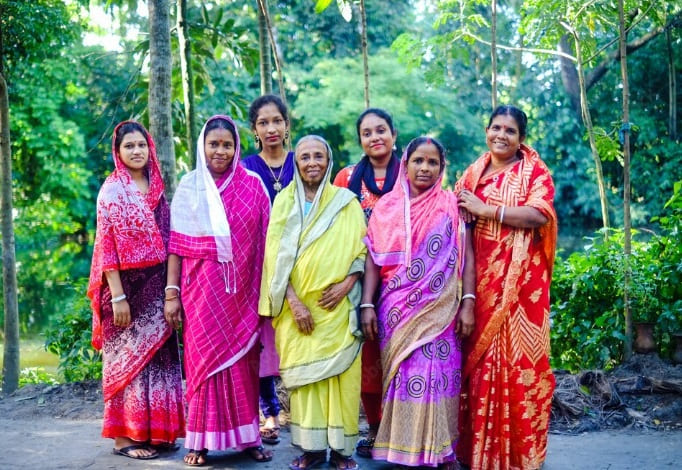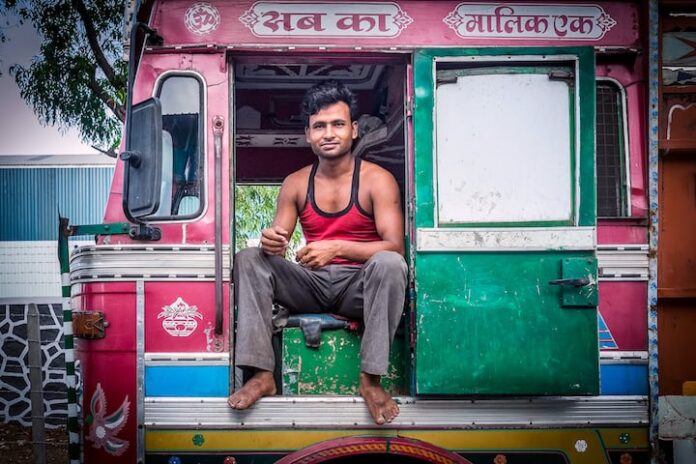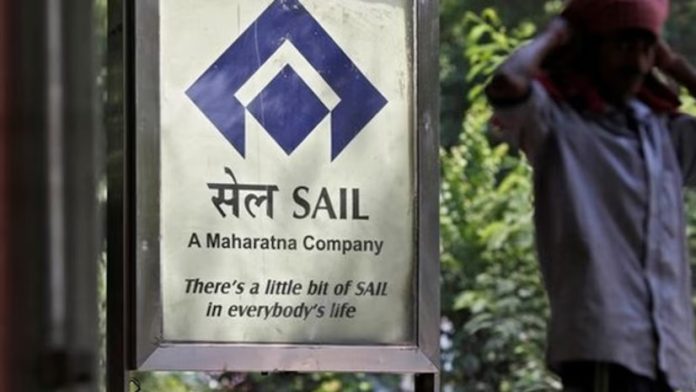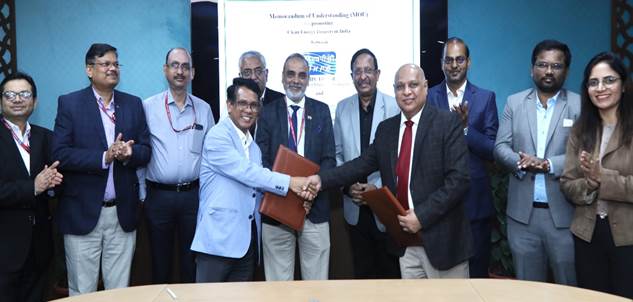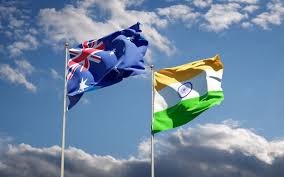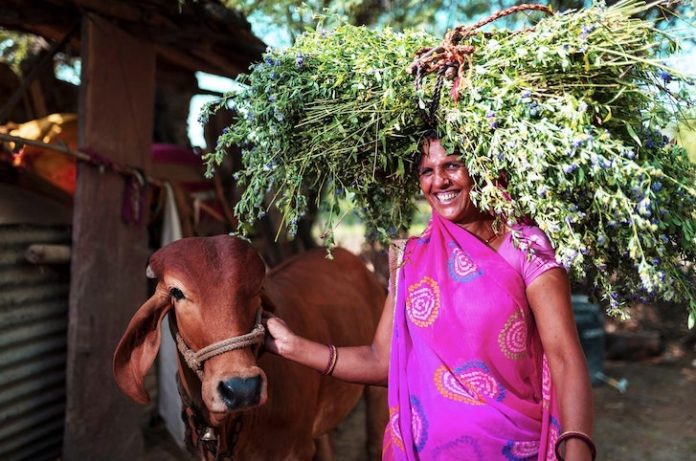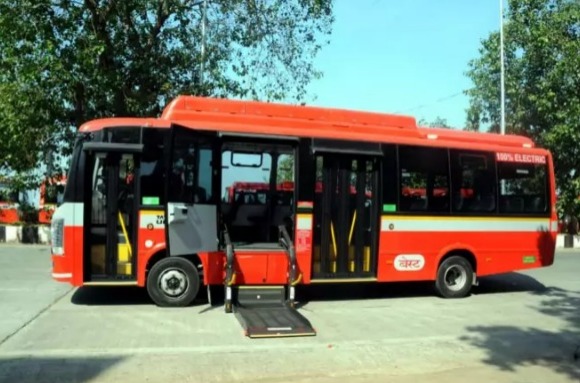Sri Lanka’s Lalitha Ranjani and Sunil Mohan of India win 3rd Kamla Bhasin Awards for Driving Gender Equality Across South Asia
This year’s the Kamla Bhasin Awards 2024 for Driving Gender Equality Across South Asia have been awarded to Lalitha Ranjani of Sri Lanka and Sunil Mohan from India. Additionally, the Special Jury Awards have been conferred upon Jaya Chakma from Bangladesh and Nikhil Taneja from India. The awards were presented on Saturday, 30th November 2024 here at India Habitat Centre, in recognition of the exemplary work carried out by these individuals to challenge patriarchy, promote gender justice, and inspire meaningful societal change. It is named after Kamla Bhasin, feminist icon, poet, author, educationist and a pioneer of the women’s rights movement in South Asia. The awards are given under two categories, which include a citation in the form of a trophy and a cheque of INR 100,000 each, and have been jointly given by Azad Foundation, iPartner India and National Foundation for India since 2022. The Special Jury Award consists of a citation in the form of a trophy. The award ceremony was followed by singing of the Padma Bhushan Usha Uthup.
While Lalitha won the award in the first category, a woman (cis/trans) practicing Non-Traditional Livelihood, Sunil has been awarded under the category two, a man (cis/trans), working towards enabling a gender-just ecosystem. Jaya has been awarded under category one and Nikhil under category two respectively. The awardees were selected by a six-member jury chaired by diplomat and human rights advocate Radhika Coomaraswamy (Sri Lanka), after a rigorous process. Other jury members included Anu Aga (India), Khushi Kabir (Bangladesh), Binda Pandey (Nepal), Munizae Jahangir (Pakistan) and Namita Bhandare (India).
Announcing the awards, Coomaraswamy said, “The aim of this award is to honour the life and works of Kamla Bhasin—a life dedicated to selfless service, always prioritising the oppressed and marginalised groups in society. Kamla was a beacon of light for women across South Asia, and her legacy continues to inspire us all.” She further added, “This year, the awards attracted candidates from nearly every South Asian country, and we had the privilege of evaluating extraordinary individuals from diverse fields—young men running creative gender equality programs, women involved in non-traditional livelihoods, women with disabilities, and trade unionists fighting for the rights of working-class women. Given the high caliber of applicants, we have awarded a Special Jury Award in each category to acknowledge their remarkable contributions.” Coomaraswamy concluded, “To the awardees, I want them to know: South Asia stands with them in their ongoing struggle.”
About the Awardees
Lalitha Ranjani, Sri Lanka
Lalitha is a trailblazing trade union activist from Sri Lanka who has spent decades organizing and empowering women in the garment sector. As the founder and Chief Organizer of the Textile Garment and Clothing Workers Union (TGCWU), the first women-led trade union in Sri Lanka, she has established a strong presence for women’s leadership in industrial zones, building a membership of over 1,500 workers. Her vision is to amplify the voices of garment workers nationally and strengthen their collective bargaining power.
Sunil Mohan, India
Sunil, a trans man and former captain of the Kerala women’s cricket team, has dedicated over 20 years to advocating for gender equity and trans rights in India. Based in Bangalore, he has transformed lives through legal advocacy, crisis intervention, and community-based initiatives, impacting over 3,000 individuals. Sunil’s vision includes establishing a queer café to foster dialogue and creative expression for the trans community.
Jaya Chakma, Bangladesh (Special Jury Award)
Jaya, Bangladesh’s first and only FIFA-accredited female football referee and coach, is a pioneer for women in sports. Coming from the minority Chakma tribe, Jaya has shattered societal barriers to create opportunities for women in football. As a coach at the Bangladesh Krira Shikha Protishthan (BKSP), she has led her teams to multiple victories and continues to inspire young girls, especially those from minority communities, to break into male-dominated fields.
Nikhil Taneja, India (Special Jury Award)
Nikhil, a Mumbai-based public speaker, writer, and the CEO of Yuvaa, has been a relentless advocate for mental health and gender sensitivity among Indian youth. Through his video chat show “Be A Man, Yaar”, and his extensive campus outreach across over 100 institutions, Nikhil challenges toxic masculinity and fosters a culture of positive masculinity, making young boys feel less lonely and more empowered.
Quotes of Awardees
Lalitha Ranjani
“I have worked for 30 years now, and winning this award has given me the courage to continue with my trade union work. So far, I have faced challenges successfully with the strength of my family and a group of strong-willed women around me. My goal is to ensure that all workers in the FTZs enjoy the rights and entitlements enshrined in the constitution. I strive to form women’s trade unions at many worksites and establish a federation of unions affiliated with the textile and clothing worker unions in the future.”
Sunil Mohan
“I don’t want others to face the struggles I’ve faced because of my identity. This is why I began working on these issues. I’m so happy to receive this award. After more than 20 years of work, for the first time, I feel that someone has acknowledged my efforts, someone has truly valued my work.”
Jaya Chakma
“The main challenge I face even today is the tendency of people not accepting me. However, there is no gender discrimination in my field of work. As a football coach and referee, I can teach both men and women. Being a woman referee doesn’t stop me from showing a red card in a men’s tournament. Receiving the Kamla Bhasin Award feels like earning a degree. And what do people do after receiving a degree? They serve others. This award inspires me and has increased my responsibility to serve people.”
Nikhil Taneja
“I have immense respect for Kamla Bhasin. She made significant contributions to the feminist movement in India, and being associated with an award in her name is both an honour and a responsibility. It is my duty to carry forward this work with other activists so that the next generation of youth can grow up in safe spaces where they do not feel lonely.
Disclaimer: This media release is auto-generated. The CSR Journal is not responsible for the content.
एनसीएल के सीएसआर से आदिवासी महिलाएं हो रही है सशक्त
सिंगरौली, मध्य प्रदेश का एक आदिवासी बहुल क्षेत्र, अब महिलाओं के सशक्तिकरण की दिशा में नई कहानी लिख रहा है। कोयला मंत्रालय के अधीन आने वाली PSU कोल इंडिया लिमिटेड की अनुषंगी कंपनी नॉर्दर्न कोलफील्ड्स लिमिटेड (NCL) ने अपने कॉर्पोरेट सोशल रिस्पांसिबिलिटी (CSR) पहल के तहत सिंगरौली महिला लघु धारक पोल्ट्री परियोजना शुरू की है। यह परियोजना आदिवासी महिलाओं को आत्मनिर्भर बनाने की दिशा में एक महत्वपूर्ण कदम है। इस पोल्ट्री परियोजना के माध्यम से सिंगरौली की 750 से अधिक आदिवासी महिलाओं को पोल्ट्री फार्मिंग की ट्रेनिंग और रोजगार के अवसर प्रदान किए जा रहे हैं।
एनसीएल का सीएसआर ला रहा है सिंगरौली की आदिवासी महिलाओं के जीवन में बड़ा बदलाव
इन महिलाओं को न केवल मुर्गी पालन की तकनीकी जानकारी दी जा रही है, बल्कि उन्हें आर्थिक सहायता और मार्केटिंग में भी मदद मिल रही है। NCL यानी Northern Coalfields Limited ने अपने CSR – Corporate Social Responsibility की मदद से महिलाओं को उनके गांवों में ही छोटे पोल्ट्री यूनिट स्थापित करने के लिए प्रोत्साहित किया है। इस परियोजना का मुख्य उद्देश्य महिलाओं को ऐसा कौशल देना है जिससे वे अपने परिवार की आय बढ़ा सकें और आत्मनिर्भर बन सकें। सिंगरौली की आदिवासी महिलाओं के लिए यह परियोजना किसी वरदान से कम नहीं है।
सीएसआर की मदद से एनसीएल ने बनाई है महिला पोल्ट्री प्रोड्यूसर्स कंपनी लिमिटेड
Northern Coalfields Limited ने सिंगरौली (Madhya Pradesh News) महिला पोल्ट्री प्रोड्यूसर्स कंपनी लिमिटेड बनाई है। सिंगरौली जिले के 16 गांव में 750 इकाइयां कम कर रही है। सीएसआर की मदद से एनसीएल की पोल्ट्री परियोजना में एक महिला सदस्य एक साल में चिकन के 6 से 7 बैच पालती है। मुर्गी पालन में दिन में दो से तीन घंटे का समय लगता है। 500 मुर्गियों के सेट से 35000 से लेकर 45000 रुपए सलीना की कमाई ये महिलाएं कर रही है। वित्तीय वर्ष 2023-24 में कुल 18 करोड़ रुपए का कारोबार हुआ जबकि फिलहाल के चालू वर्ष 2024-25 में अब तक 10 करोड़ रुपए का कारोबार हो चुका है। इस फाइनेंसियल ईयर में 24 करोड़ से अधिक आय के कारोबार का लक्ष्य रखा गया है।
NCL के इस परियोजना से स्थानीय अर्थव्यवस्था को मिल रहा है बढ़ावा
यह परियोजना न केवल महिलाओं के जीवन में बदलाव ला रही है, बल्कि सिंगरौली की स्थानीय अर्थव्यवस्था को भी सुदृढ़ बना रही है। पोल्ट्री उत्पादों की बढ़ती मांग के कारण स्थानीय बाजारों में व्यापार बढ़ रहा है। साथ ही, यह पहल गांवों में रोजगार के नए अवसर भी पैदा कर रही है। हम आपको बता दें कि 750 आदिवासी महिलाएं प्रत्यक्ष रूप से इस परियोजना से लाभान्वित हो रही है। रोजगार की तलाश में अब इन महिलाओं को बाहर नहीं बल्कि उनके घर पर ही रोजगार मिल रहा है और इन रोजगारों से कमाई भी अच्छी खासी हो रही है। आर्थिक संपन्नता के साथ-साथ अब इन आदिवासी महिलाओं के हर सपनों को पंख लग रहे हैं।
महिला सशक्तिकरण की दिशा में सीएसआर का ये एक बड़ा कदम है
सीएसआर से एनसीएल (NCL) की यह पहल महिला सशक्तिकरण की दिशा में एक उदाहरण बन रही है। कंपनी का मानना है कि सशक्त महिलाएं न केवल अपने परिवार का भविष्य बेहतर बनाती हैं, बल्कि पूरे समाज के विकास में भी योगदान देती हैं। सिंगरौली महिला लघु धारक पोल्ट्री परियोजना, आदिवासी महिलाओं को सशक्त और आत्मनिर्भर बनाने की एक सफल पहल है। यह न केवल महिलाओं के जीवन में बदलाव ला रही है, बल्कि समाज के विकास की नई दिशा भी तय कर रही है। ऐसी पहलें यह साबित करती हैं कि यदि महिलाओं को सही अवसर और समर्थन मिले, तो वे समाज और देश के विकास में महत्वपूर्ण भूमिका निभा सकती हैं।
Health on the Road: Addressing HIV/AIDS Awareness and Support for Truck Drivers
The logistics industry is the lifeblood of modern economies, ensuring the seamless movement of goods across vast networks of supply chains. Within this ecosystem, truck drivers play an indispensable role, often exploring challenging regions and enduring long hours on the road. The demanding nature of their work exposes them to unique health challenges, including a heightened risk of contracting HIV/AIDS.
As per a study by the Indian Journal of Medical Research, one-third of the long-distance truck drivers in India (approximately 2.5 million) engage in sexual activities with female sex workers, and a substantial proportion of them have sexual relationships with unpaid casual female partners. Consistent condom use among truck drivers in India is still low, at 58-74 per cent with female sex workers and 20 per cent with unpaid or casual female sex partners.
These factors, combined with limited awareness about HIV/AIDS prevention and the stigma associated with the disease, lead to the rapid and widespread dissemination of the virus. For trucking companies and logistics leaders, addressing this issue is not only a moral obligation but also a pressing necessity to safeguard their workforce and ensure operational efficiency.
Understanding the Vulnerability of Truck Drivers
The itinerant lifestyle of truck drivers is often characterised by long duty hours and irregular schedules. The demanding nature of their work often leads to extended periods away from home, creating feelings of loneliness and emotional detachment. To seek companionship, drivers often resort to high-risk behaviours, such as engaging in transactional sex with sex workers. A study conducted by PPHF Global revealed that nearly 36% of truck drivers engage with sex workers during transit.
Also, since truck drivers frequently travel through regions with limited access to healthcare and low awareness about sexually transmitted infections (STIs), they are at a high risk of contracting and spreading these infections. The lack of regular medical check-ups and the stigma associated with HIV and STI testing further exacerbate their vulnerability. These factors, coupled with their high-risk behaviours, exponentially increase the risk of HIV/AIDS transmission.
The Industry’s Role in Raising Awareness
By creating an ecosystem that promotes education, prevention, and treatment, the industry can contribute significantly to mitigating the impact of HIV/AIDS on this vulnerable group.
Industry leaders should focus on organising frequent awareness campaigns tailored for truck drivers. These campaigns should be deployed at strategic locations such as transport hubs, truck stops, and loading docks, where drivers congregate in large numbers.
To maximise the impact of these campaigns, they should collaborate with healthcare providers and NGOs. By working together, they can distribute informative materials, offer free health check-ups, and provide essential counselling services.
These initiatives can help to dispel misconceptions, promote healthy behaviours, and encourage early testing and treatment.
Furthermore, utilising the power of digital technology is essential to reach truck drivers, especially those operating in remote areas. By utilising digital platforms and mobile apps, the industry can disseminate critical information, provide access to telemedicine consultations, and connect drivers with support services.
Challenges in Implementation
The nature of trucking work, marked by irregular schedules and constant mobility, limits drivers’ ability to attend awareness sessions or access medical care. This, coupled with cultural stigmas surrounding HIV/AIDS, often deters them from seeking help due to fear of judgement or discrimination.
To address these obstacles, preventive strategies must be tailored to their specific lifestyle. Implementing flexible timings for health camps, providing multilingual educational materials, and establishing anonymous testing facilities can significantly improve participation and acceptance. By making these services accessible and discreet, we can encourage truck drivers to prioritise their sexual health and reduce the risk of HIV/AIDS transmission.
The Road Ahead
The future of the logistics industry largely depends on the health and well-being of its most vital asset—truck drivers. HIV/AIDS, however, threatens to undermine their well-being and, consequently, the industry’s efficiency.
By investing in education and awareness campaigns, we can empower drivers to make informed choices about their health. This includes providing accurate information about HIV/AIDS transmission, prevention methods, and the importance of regular testing. Additionally, establishing accessible clinics and mobile health units along major trucking routes will facilitate confidential testing, counselling, and treatment. Encouraging the use of condoms and other preventive measures through distribution and education initiatives should also be prioritised.
Furthermore, by enabling a culture of empathy and understanding, we can break down stigma and encourage open dialogue, allowing drivers to seek help without fear of judgement. This integrated approach of prevention, innovation, and empathy will considerably improve the health of truck drivers, thereby contributing to a safer, more sustainable, and equitable supply chain ecosystem.
Views of the author are personal and do not necessarily represent the website’s views.
 Vivek Juneja is the Founder and Managing Director at Varuna Group, India’s leading homegrown logistics warehousing and integrated services company. Having built a 26-year legacy from scratch and nurturing his dream into a high-growth and high-value logistics empire, Vivek, a visionary veteran, concentrates on formulating and implementing strategies for the organisation to ensure continued success well into the future. Human Resources, Information Technology, Accounts, Customer Relations, and Infrastructure Development are among the business-critical areas he monitors and directs.
Vivek Juneja is the Founder and Managing Director at Varuna Group, India’s leading homegrown logistics warehousing and integrated services company. Having built a 26-year legacy from scratch and nurturing his dream into a high-growth and high-value logistics empire, Vivek, a visionary veteran, concentrates on formulating and implementing strategies for the organisation to ensure continued success well into the future. Human Resources, Information Technology, Accounts, Customer Relations, and Infrastructure Development are among the business-critical areas he monitors and directs.
NHPC Partners with Global Green Growth Institute to Drive Clean Energy Innovations
In a significant step toward fostering sustainable development and combating climate change, NHPC signed a Memorandum of Understanding (MoU) with the Global Green Growth Institute (GGGI) at its Corporate Office, Faridabad on November 28th, 2024. The MoU was signed by Shri V.R. Shrivastava, Executive Director (REGH), NHPC and Shri Soumya Prasad Garnaik, Country Head of GGGI in the presence of Shri Uttam Lal, Director (Personnel), NHPC and Dr. D.K. Khare, Advisor, GGGI. Senior officials from both organizations also attended the ceremony.
This collaboration aims to promote innovative clean energy solutions, focusing on agrivoltaics, green hydrogen, and sustainable financing strategies. These initiatives are part of NHPC’s robust R&D efforts to address climate challenges while advancing India’s transition to a low-carbon economy.
Under the partnership, NHPC and GGGI will work together to explore cutting-edge technologies, integrate renewable energy solutions with agricultural practices, and drive investments in green projects. The initiative also aligns with India’s broader climate goals and commitment to renewable energy under the Paris Agreement.
Speaking on the occasion, Shri Uttam Lal stated, “This partnership signifies NHPC’s dedication to adopting innovative clean energy solutions and supporting sustainable development. With GGGI’s expertise and NHPC’s legacy in renewable energy, we are poised to make impactful contributions toward a greener future.”
The MoU marks the beginning of a strategic collaboration to pave the way for scalable and impactful green energy solutions. NHPC and GGGI reaffirm their commitment to creating a sustainable, energy-secure future for generations to come.
NHPC Limited is India’s premier hydropower company and a Navratna Enterprise of the Government of India. With a strong portfolio of hydro, solar and wind projects, NHPC is committed to advancing the nation’s renewable energy goals.
The Global Green Growth Institute is an international organization dedicated to supporting and promoting sustainable economic growth in developing and emerging countries by focusing on green energy and climate resilience initiatives.
Disclaimer: This media release is auto-generated. The CSR Journal is not responsible for the content.




